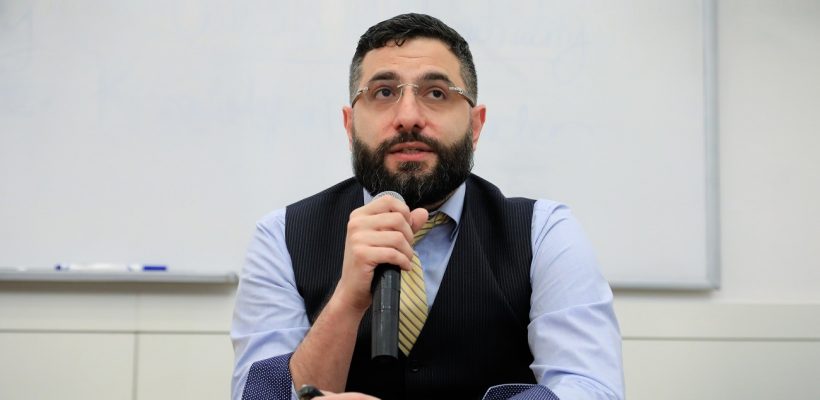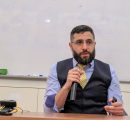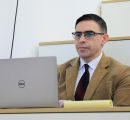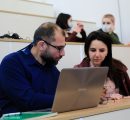
AUA Professor Dr. Armen Kherlopian Leads Seminar on Research Design
3 min readYEREVAN, Armenia — On February 16, 2022, with more than 100 individuals attending in a hybrid in-person and virtual format, Professor of Artificial Intelligence (AI) at the American University of Armenia (AUA) Dr. Armen Kherlopian, conducted a special initiative seminar. The topic was Research Design: From Project Proposals to Publishing, which underscored AUA’s commitment to research providing participants with tangible tools on how to conduct research to make significant and sustainable impacts in different facets of society.
The event, hosted by the Akian College of Science and Engineering (CSE), attracted not only faculty, staff, and students from AUA, but also interested parties from industry within the local community and from abroad. The event was co-organized by several AUA Open Centers of Excellence, including the Acopian Center for the Environment, the Entrepreneurship and Product Innovation Center (EPIC), the Open Center of Excellence for AI Solutions, as well as the Center for Teaching and Learning, a unit of the Office of Institutional Research and Assessment.
Dr. Kherlopian is a world-renowned data scientist, researcher, entrepreneur, investor and expert in AI. His current scholarly activities focus on helping to drive a science-based economy: from primary research in machine perception to fostering the rise of startup unicorns from academic research and lab innovations.
“The key aspect and purpose of research is to help Armenia improve its industry and economy,” asserted Dr. Kherlopian as he introduced the concept and processes of research to the audience.
The hour-long seminar was filled with detailed explanations and useful stories to help illustrate the different components and importance of research. Everything from heart valves and rocket science, to Formula E race cars and self-driving vehicles were discussed to elaborate how research is intertwined and always needed for creating and continually improving our capabilities.
Through hard work and teamwork, research allows us to “…push back the edge of knowledge,” Dr. Kherlopian explained offering various examples of AI.
The seminar then focused on the importance of identifying one’s interests and getting started with research by designing a research proposal. “Research is about extending knowledge and understanding where gaps may exist.” Dr. Kherlopian highlighted the need to identify areas that require more research, considering the system in research design, and understanding how a research experiment might itself affect the environment in different ways.
Different types of scholarly publications were then described by Dr. Kherlopian as he emphasized the importance and need for each type. Everything from grant proposals, journal articles, data sets, and translations to case studies, patents, student theses, and book contributions were discussed. The speaker also addressed the use of social media and other emerging mediums as evolving ways of creation and research information distribution. He stressed the need for peer review in research to ensure quality that would benefit society and maintain the integrity and validity of the research instruments and findings.
Dr. Kherlopian closed the session with a call to action. He urged everyone to seek opportunities to get involved with research and to create scholarly publications to help Armenia and the world increase the levels of knowledge and capabilities. Dr. Kherlopian then invited Dr. Garabet Kazanjian from the AUA Acopian Center for the Environment, to share some of the current real-life and impactful opportunities that exist for students to engage in research at AUA.
Founded in 1991, the American University of Armenia (AUA) is a private, independent university located in Yerevan, Armenia, affiliated with the University of California, and accredited by the WASC Senior College and University Commission in the United States. AUA provides local and international students with Western-style education through top-quality undergraduate, graduate, and certificate programs, promotes research and innovation, encourages civic engagement and community service, and fosters democratic values.




